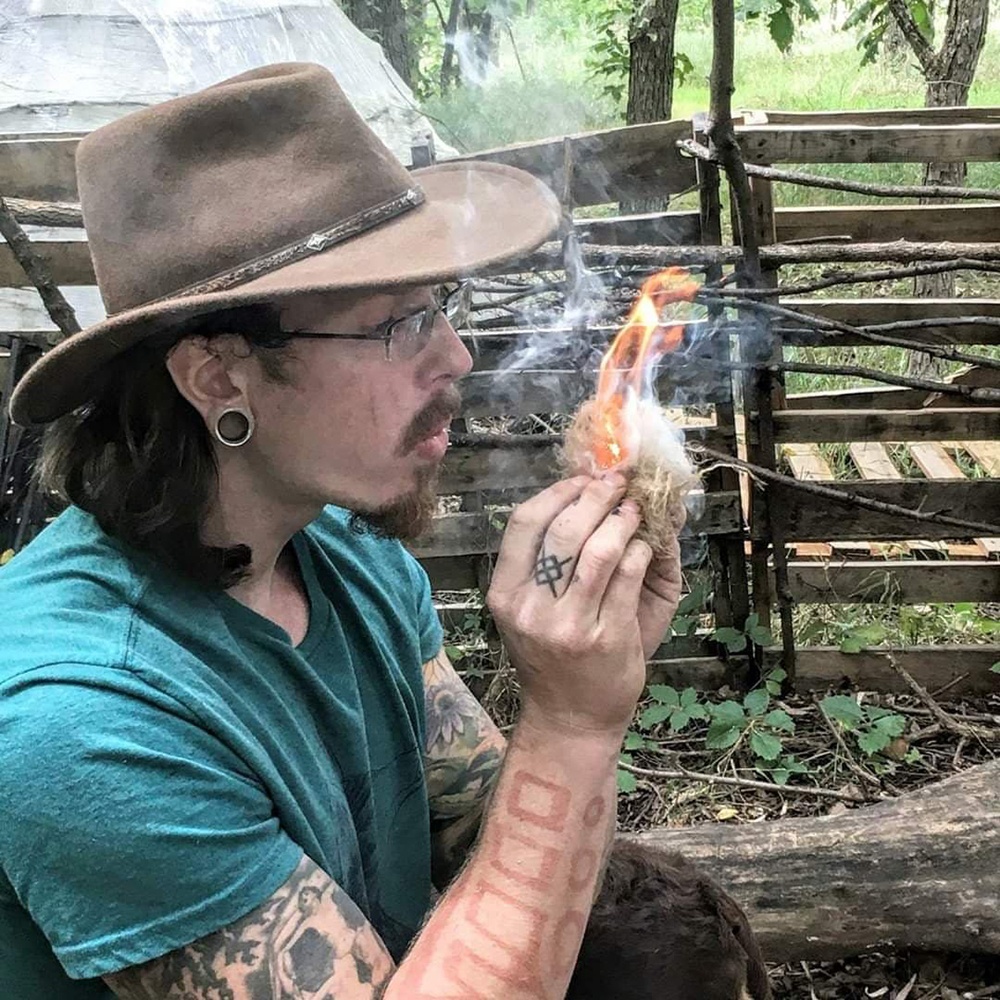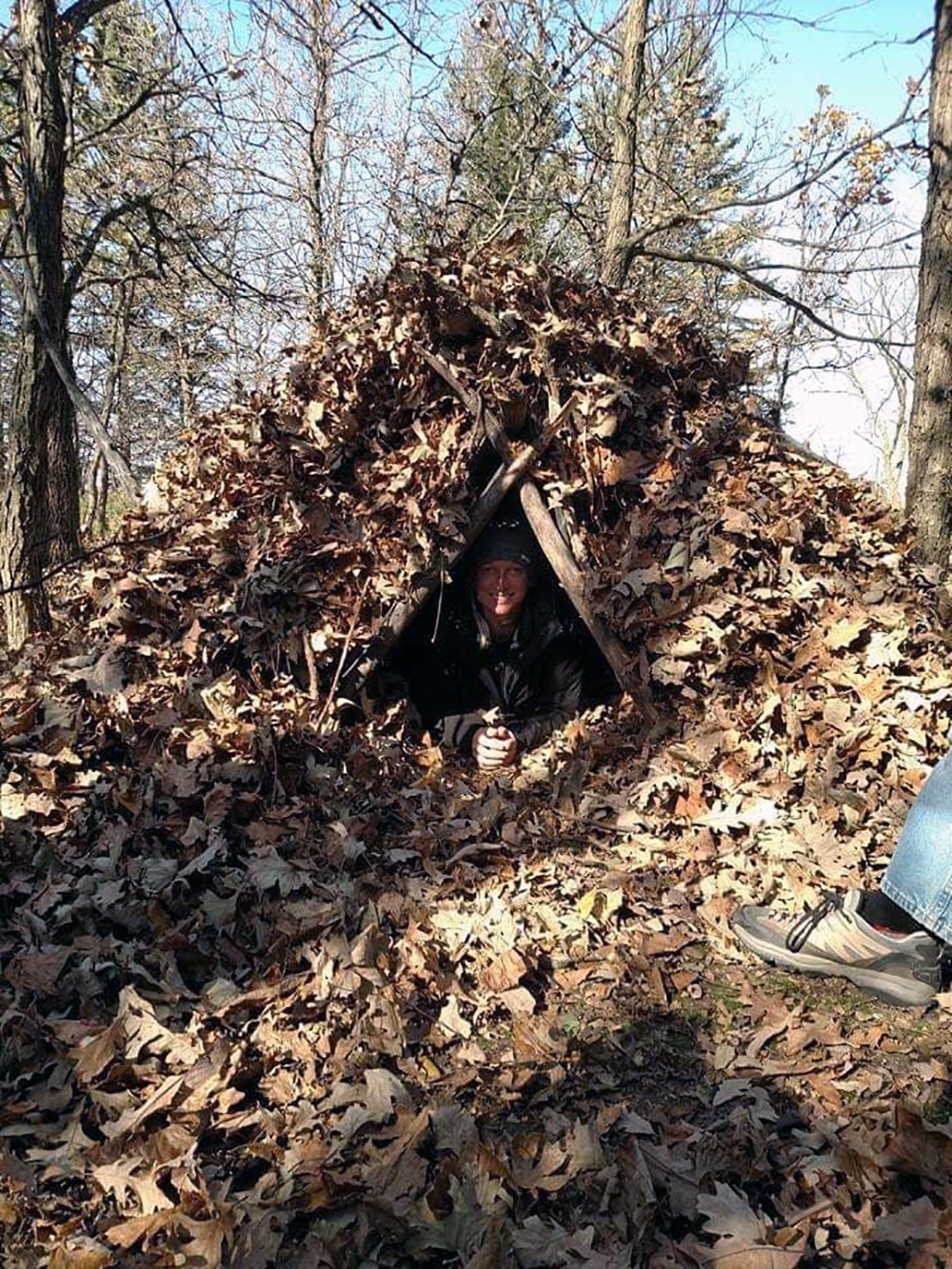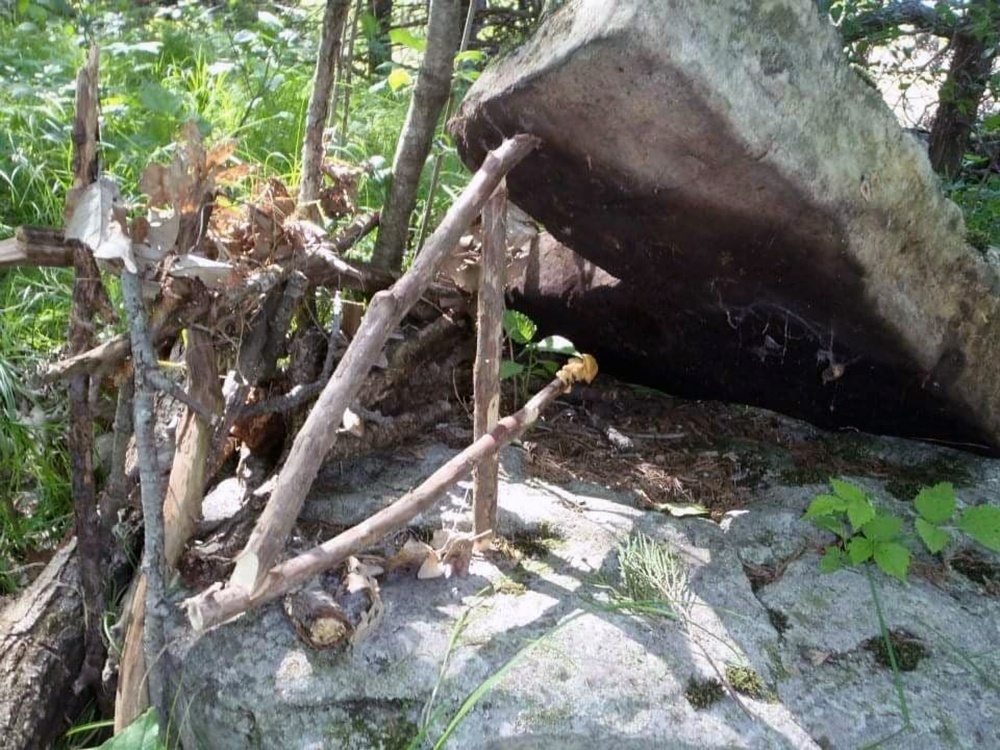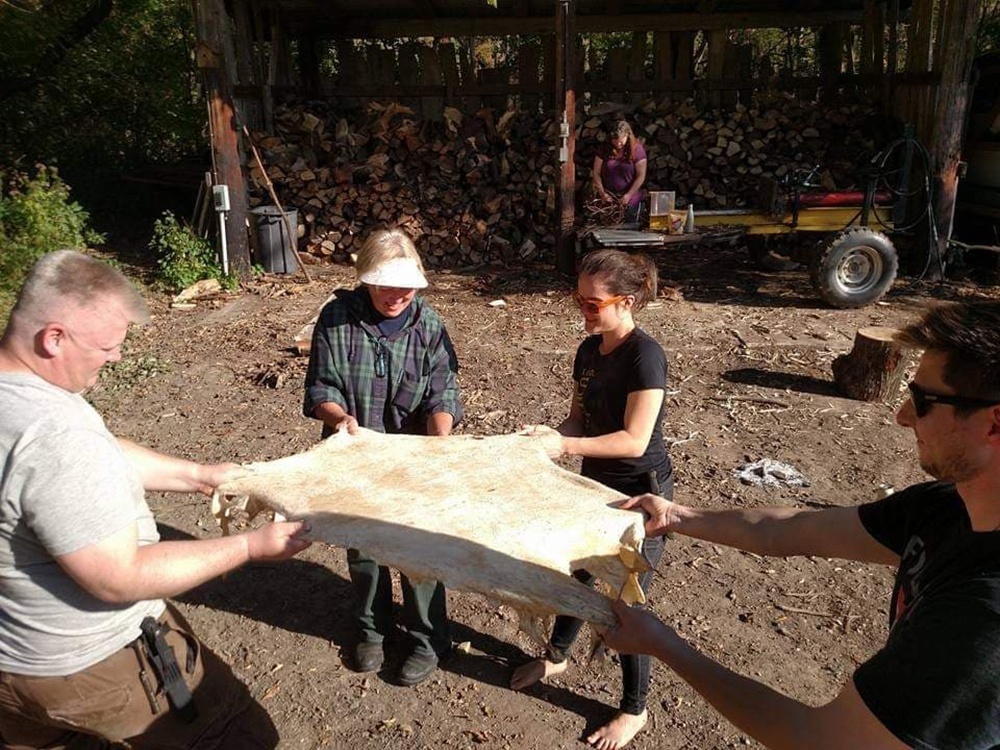If the zombie apocalypse was tomorrow, if the recent COVID-19 shutdowns have limited your access to fruits, veggies, and meat, or even if you’re simply seeking a way to feel more connected to the world around you, Mason Grove is the expert to call.

“It helps to be pretty well prepared for everything,” Grove said. This survivalist philosophy led the Minnesota resident to create the Minnesota Primitive Skills and Survival School, located between Mankato and St. Peter. His unique training program aims to equip students to survive and thrive in the wild – without any modern resources.
My Side of the Mountain and Hatchet got me into itMason Grove
From teaching students how to master that tricky friction fire technique that looks so easy in cartoons, to imparting knowledge about how to make water safe to drink, Grove’s goal is to help his classes feel confidence in and respect for their natural surroundings.
“You can get by without [these skills] in modern society if you want to, but then you’re dependent on the system of how everything gets to you,” Grove said. “As you can see in the past few days, our supply of food isn’t exactly reliable in all situations. It’s good to know some alternatives.”
Starting Young
Grove’s interest in survival training began at the tender age of eight, when he stumbled upon two life-changing adventure stories.
“My Side of the Mountain and Hatchet got me into it,” Grove laughed. In Jean Craighead George and Gary Paulsen’s well-loved children’s classics, the main characters either run away to the wilderness or are stranded there, and must quickly learn how to weather the harsh environments if they want to live.
Grove has also tried many different bugs in his career, including grasshopper, cricket, scorpion, worm, mealworm, and slug
The idea of mastering the wilderness and living independently of modern resources fired Grove’s young imagination. He continued to read more and more books about survival training until he was able to enroll in New Jersey’s prestigious Tom Brown Jr. Tracker School at the age of 18. Founded in 1978 by a renowned American tracker, the School taught Grove how to thrive no matter where he found himself.
Sharing the Knowledge
Grove has actively honed his survival skills ever since but feels that his knowledge is too valuable not to share. When he realized that Southern Minnesota had very few resources for teaching survival tactics, he decided to start his own program.
“I think that it’s really important to spread these skills,” Grove explained. “In the present time, these skills can make you more self-sustaining. The systems that we have that don’t always provide for everybody and aren’t always going to be completely stable.”

Grove’s Primitive Skills courses aim to turn both inexperienced and interested students into self-aware explorers of the wilderness. His popular Basics class teaches everything from locating and purifying water, building shelters and traps, starting a friction fire, and safely identifying edible and medicinal plants in the local area.
“If you took this class and practiced these skills, then you’d be able to survive with nothing else out in the woods,” Grove said.
Broad Appeal
When he first began offering this course, Grove was excited to find that people of all kinds wanted to learn how to survive in the wild.
“We get a really wide range of people: All different ages, all different genders,” said Grove. “I’ve had an 80-year-old in one of my classes. It’s always fun meeting the people that come and people always seem to have fun meeting other people who are into the same kind of skills they are.”

Minnesota’s Primitive Skills and Survival School doesn’t just stop with the basics. One of Grove’s favorite programs to teach is the Intermediate Course, enjoyed by many who have mastered the Basics class or who already have some knowledge of survival training.
“It’s more of the long-term primitive survival skills,” said Grove. “Tanning animal hides, more advanced shelter, primitive pottery, basketry – that kind of stuff would make your primitive living more comfortable and easier.”
Practice Makes Perfect
Although Grove hopes that each of his students will leave his classes well-equipped for primitive living, he recommends that they practice survival skills regularly if they really want to be successful.
“A lot of these skills take a while to practice and get down good enough to be able to rely on them,” Grove said. He follows his own advice and frequently takes “survival trips” to various Minnesota locations as well as desert, mountain, and tropical areas.
“I don’t like to do it alone very much,” Grove said. “I think it’s more fun doing it with a friend.” For anywhere from a few days to a week, Grove and his buddies leave their technology and modern conveniences at their car and focus on living off the land.
“For survival, it takes about three days or so to learn how well you’ll do in an environment,” said Grove. “In the first three days, you’re setting up shelter, making traps, that kind of stuff, and after three days you’re basically just trying to sustain yourself.”
Common Principles
While Grove has taken multiple classes on surviving in different environments, he’s noticed that many survival tactics, such as building shelter, have similar principles.
“That’s pretty universal,” Grove said about making primitive housing. “Obviously, you’re going to switch to a different kind of shelter based on the needs of the environment: If it’s cold you’ll need more insulation, or if it’s really wet, you’re going to need more water protection in your shelter. The basic principles and design of it have the same elements.”
Another universal principle that often surprises Grove’s students is bug nutrition: With some exceptions, most bugs are good to eat! On one memorable foraging nature walk, Grove was teaching his class about edible insects when a student spotted a cicada resting on a tree. What better way to apply this lesson than by eating the flying bug?
I kind of like to take the mindset that I’m just another animal that can live out in the woods. It just kind of gives me a connection to the landscape and I feel more in tune with everything that’s going on around me.Mason Grove
“We cooked it up and she ate it,” Grove said, laughing. “That was pretty fun.” According to his student, the cicada was nice and juicy with a nutty flavor.
Grove has also tried many different bugs in his career, including grasshopper, cricket, scorpion, worm, meal worm, and slug. The scorpion is his favorite so far.
“It was kind of like a slightly nutty potato chip,” Grove remembered. “They’ve got lots and lots of protein, more than normal food does. They could definitely be a good alternative food source for the world in the future.”
Everyone Can Benefit
While many people may think that the need for survival skills is limited in today’s technology-driven society, Grove believes that knowing basic primitive training not only prepares for worst-case scenarios but enriches life in general.
“I hope people get the skills to survive, the feeling of confidence in themselves, their skills and their ability to learn more things, and also the feeling of connection to the land,” Grove said. An important part of primitive survival training is being aware of your surroundings and taking deliberate care when crafting a tool or a shelter. Both elements have enriched Grove’s everyday life.
“I kind of like to take the mindset that I’m just another animal that can live out in the woods,” said Grove. “It just kind of gives me a connection to the landscape and I feel more in tune with everything that’s going on around me.”

Best of all, Grove’s primitive survival training has given him an increased appreciation for his place in the world at large – as well as a means of independence.
“I definitely feel more of a sense of security and freedom from being able to be self-sufficient,” Grove said. “It’s good for us as a whole species. I think if more people know how to get their own water and make it safe to drink, what plants they can eat and what plants they can use to cure their illnesses, then they’ll have more appreciation for and be more conscious of what we do to our environment.”
To Learn More
To learn more about MN Primitive Skills and Survival School, or to view the 2020 class schedule, visit the school’s Facebook page.




